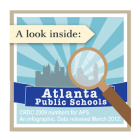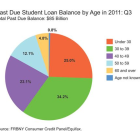
For decades, study after study have shown that children who attend pre-kindergarten programs are better prepared for the rest of their education, beginning in kindergarten and lasting all the way to college. They perform better on tests, repeat grades less often and need less special education than kids who did not attend pre-k regardless of socioeconomic status, according to research by The Pew Center on the States. But funding for pre-k programs across the country is steadily declining. In fact, a new report released today by the National Institute for Early Education Research (NIEER) at the Brunswick, N.J. campus of Rutgers University, finds most states aren’t even giving their pre-k programs enough cash to maintain quality standards and calling the “overall picture” of pre-k education “dim.”
The report, “The State of Preschool 2011 Yearbook,” ranks the states on their funding of pre-k programs and their availability to children using 10 benchmarks of quality pre-k standards. Only five state programs met all of NIEER’s 10 benchmarks.









